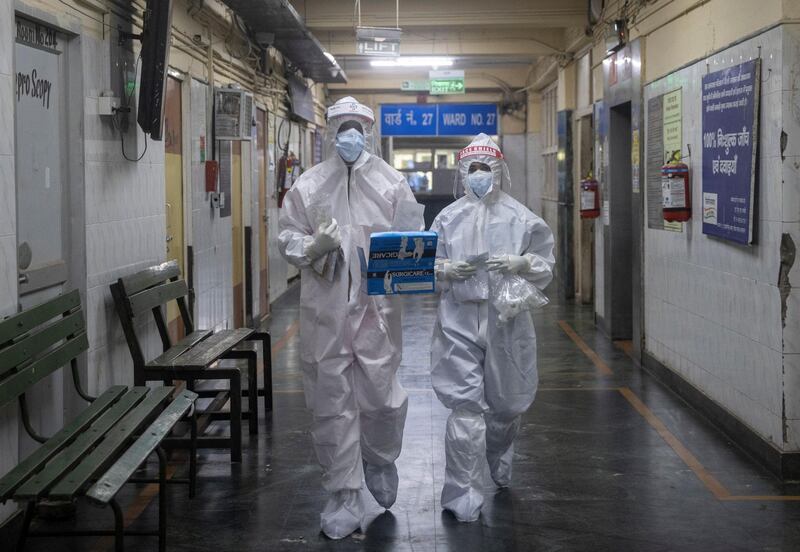B20 Saudi Arabia, the official platform for the global business community across G20 member countries, urged international collaboration between the public and private sector in preparing for a second wave of the coronavirus pandemic.
Businesses must continue to operate or face the risk of a global economic depression, even if in the absence of a viable and readily available vaccine in the near future, participants of a B20 Saudi Arabia said in a virtual discussion.
Preparations for a second wave of Covid-19 infections must support the groups most vulnerable to the crisis including small-and-medium enterprises and female workers, Yousef Al Benyan, chairman of B20 Saudi Arabia, said.
“We recognise the severity of the virus and its continued pressure on business across the world, even as some economies move past their first wave of cases," he said. "We must safeguard the future of business together through collaborative action and dutiful preparedness in a way that supports those most vulnerable to the disruption caused by the pandemic, such as women in the workforce and micro, small and medium-sized businesses."
In June, the Organisation for Economic Co-operation and Development (OECD) said it expects the world economy to shrink 6 per cent this year before growing 5.2 per cent in 2021, if the coronavirus is contained. In the event of a second wave of infections, the world economy may contract 7.6 per cent before growing by 2.8 per cent next year.
Unemployment in OECD countries is expected to rise to 9.4 per cent this year, up from 5.3 per cent in 2019, if the outbreak is kept under control, the organisation said in its latest employment outlook report on July 7.
Even then, it remains the worst unemployment figure since the Great Depression and could increase to 12.6 per cent this year if there is a second wave of infections.
Businesses will continue to require support as economic recovery gathers steam, especially if there is another wave of the virus, Luiz de Mello, director of the Policy Studies Branch at the Economics Department of the OECD, said at a panel discussion in the B20 meeting.
"Over time, we will need to move away from rescue towards recovery and reallocation," he said. "The policies we put in place will need to consider this angle—for instance, job protection initiatives for individuals who work in sectors that suffer the most. We don't want to come out of this crisis with high structural unemployment or stranded assets.”
A coordinated cross-border action plan is necessary following the lessons learns from the first outbreak of the coronavirus, the B20 finance and infrastructure taskforce chairman Rayan Fayez said.
"While the global financial system continues to contract, we must ensure it can withstand a potential second wave and emerge stronger post-pandemic," he said. "In an intricately inter-connected and co-dependent global system of finance, trade, investment, technology, and governance, the crisis should be contained with globally coordinated measures.”
The Covid-19 pandemic has "exacerbated the digital divide" for people and businesses, particularly women and small businesses, Diane Wang, the B20 co-chair of the digitalisation taskforce, said.
"As the world may face potential new waves of infection, we need a coordinated effort between business leaders, governments and multilateral organizations to ensure businesses of all sizes have the financial, technological and regulatory support necessary to keep economies moving,” she said.








